| |
Date |
Event(s) |
| 1 | 1837 | - 20 Jun 1837—22 Jan 1901: Queen Victoria's reign

Victoria was Queen of the United Kingdom of Great Britain and Ireland from 20 June 1837 until her death. On 1 May 1876, she adopted the additional title of Empress of India.
Victoria inherited the throne at the age of 18, after her father's three elder brothers had all died leaving no surviving legitimate children. She became a national icon who was identified with strict standards of personal morality. Victoria married her first cousin Prince Albert. After his death in 1861, Victoria plunged into deep mourning and avoided public appearances. As a result, republicanism temporarily gained strength but in the latter half of her reign, her popularity recovered. Her Golden and Diamond Jubilees were times of public celebration.
|
| 2 | 1859 | - 12 Jun 1859—18 Oct 1865: Viscount Palmerston - 37th British Prime Minister
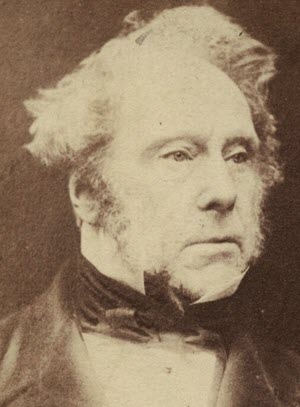
Henry John Temple, 3rd Viscount Palmerston, (20 October 1784 – 18 October 1865) was a British statesman who served twice as Prime Minister in the mid-19th century. Palmerston dominated British foreign policy during the period 1830 to 1865, when Britain was at the height of her imperial power. He held office almost continuously from 1807 until his death in 1865. He began his parliamentary career as a Tory, defected to the Whigs in 1830, and became the first Prime Minister of the newly formed Liberal Party in 1859.
He had two periods in office, 1855–1858 and 1859–1865, before his death at the age of 80 years, a few months subsequent to victory in a general election in which he had achieved an increased majority. He remains, to date, the last Prime Minister to die in office.
|
| 3 | 1863 | - 1863: First Underground Railways
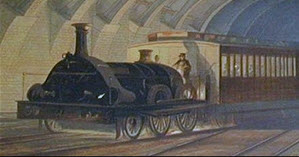
The history of the London Underground began with the construction of the Metropolitan Railway, the world's first underground railway which opened in 1863 using gas-lit wooden carriages hauled by steam locomotives. The Metropolitan eventually extended more than 50 miles from Baker Street, London. By 1907 the District and Metropolitan Railways had electrified the underground sections of their lines.
|
| 4 | 1865 | - 29 Oct 1865—26 Jun 1866: John Russell - 38th British Prime Minister
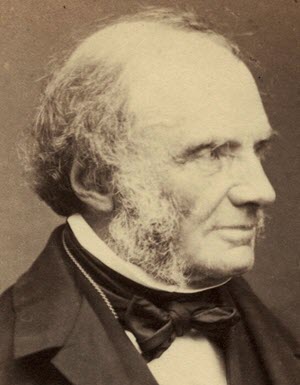
John Russell, 1st Earl Russell, (18 August 1792 – 28 May 1878), known by his courtesy title Lord John Russell before 1861, was a leading Whig and Liberal politician who served as Prime Minister of the United Kingdom on two occasions during the early Victorian era.
When Palmerston suddenly died in late 1865, Russell again became Prime Minister. His second premiership was short and frustrating, and Russell failed in his great ambition of expanding the franchise, a task that would be left to his Conservative successors, Derby and Benjamin Disraeli. In 1866, party disunity again brought down his government.
|
| 5 | 1866 | - 28 Jun 1866—25 Feb 1868: Earl of Derby - 39th British Prime Minister
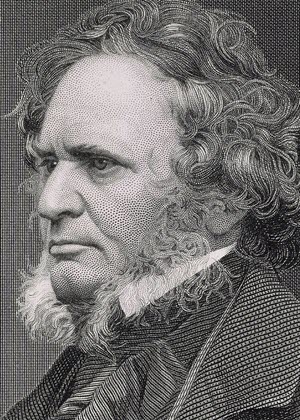
Edward George Geoffrey Smith-Stanley, 14th Earl of Derby, (29 March 1799 – 23 October 1869) was a British statesman, three-time Prime Minister of the United Kingdom and, to date, the longest-serving leader of the Conservative Party. He was known before 1834 as Edward Stanley, and from 1834 to 1851 as Lord Stanley. He is one of only four British prime ministers to have three or more separate periods in office. However, his ministries all lasted less than two years and totalled three years and 280 days.
Derby returned to power for the third and last time in 1866. This administration was particularly notable for the passage of the Reform Act 1867, which greatly expanded the suffrage but which provoked the resignation of three cabinet ministers including the Secretary for India and three-time future Prime Minister, Lord Cranborne (later Lord Salisbury).
|
| 6 | 1867 | - 7 Nov 1867: Marie Curie Born
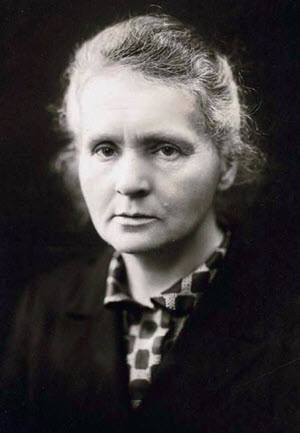
Marie Skłodowska Curie; born Maria Salomea Skłodowska 7 November 1867 – 4 July 1934) was a Polish and naturalized-French physicist and chemist who conducted pioneering research on radioactivity. She was the first woman to win a Nobel Prize, the first person and only woman to win twice, and the only person to win a Nobel Prize in two different sciences. She was part of the Curie family legacy of five Nobel Prizes. She was also the first woman to become a professor at the University of Paris, and in 1995 became the first woman to be entombed on her own merits in the Panthéon in Paris.
She was born in Warsaw, in what was then the Kingdom of Poland, part of the Russian Empire. She studied at Warsaw's clandestine Flying University and began her practical scientific training in Warsaw. In 1891, aged 24, she followed her older sister Bronisława to study in Paris, where she earned her higher degrees and conducted her subsequent scientific work. She shared the 1903 Nobel Prize in Physics with her husband Pierre Curie and physicist Henri Becquerel. She won the 1911 Nobel Prize in Chemistry.
|
| 7 | 1868 | - 27 Feb 1868—1 Dec 1868: Benjamin Disraeli - 40th British Prime Minister
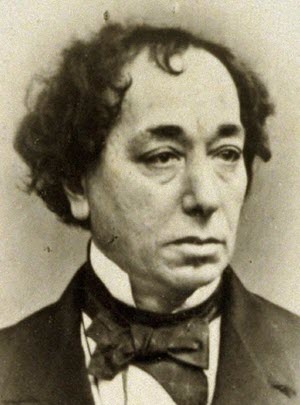
Benjamin Disraeli, 1st Earl of Beaconsfield, (21 December 1804 – 19 April 1881) was a British statesman who twice served as Prime Minister of the United Kingdom.
During his first term of office, the Conservatives remained a minority in the House of Commons and the passage of the Reform Bill required the calling of a new election once the new voting register had been compiled. Disraeli's term as Prime Minister, which began in February 1868, would therefore be short.
- 3 Dec 1868—17 Feb 1874: William Ewart Gladstone - 41st British Prime Minister
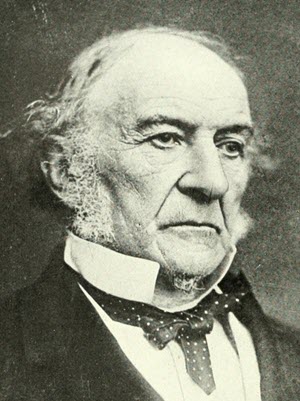
William Ewart Gladstone (29 December 1809 – 19 May 1898) was a British statesman and Liberal Party politician. In a career lasting over sixty years, he served for twelve years as Prime Minister of the United Kingdom, spread over four terms beginning in 1868 and ending in 1894.
Many reforms were passed during his first ministry, including the disestablishment of the Church of Ireland and the introduction of secret voting. After electoral defeat in 1874, Gladstone resigned as leader of the Liberal Party.
|
| 8 | 1870 | - 1870: Education Act

The 1870 Education Act stands as the very first piece of legislation to deal specifically with the provision of education in Britain. Most importantly, it demonstrated a commitment to provision on a national scale.
The Act allowed voluntary schools to carry on unchanged, but established a system of 'school boards' to build and manage schools in areas where they were needed. The boards were locally elected bodies which drew their funding from the local rates. Unlike the voluntary schools, religious teaching in the board schools was to be 'non-denominational'. A separate Act extended similar provisions to Scotland in 1872.
|
| 9 | 1871 | - 1871: Ernest Rutherford born
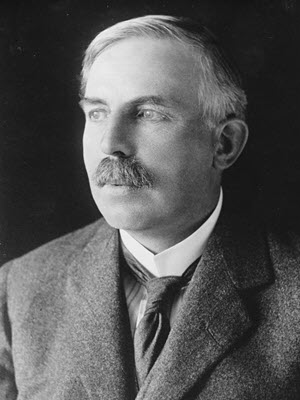
Ernest Rutherford was a New Zealand physicist known as the father of nuclear physics.
He received the Nobel Prize in Chemistry in 1908 “for his investigations into the disintegration of the elements & the chemistry of radioactive substances.” He identified & named the Alpha & Beta
|
| 10 | 1874 | - 20 Feb 1874—21 Apr 1880: Benjamin Disraeli - 42nd British Prime Minister

Benjamin Disraeli, 1st Earl of Beaconsfield, (21 December 1804 – 19 April 1881) was a British statesman who twice served as Prime Minister of the United Kingdom.
Disraeli's new government enacted many reforms, including:
- the Artisans' and Labourers' Dwellings Improvement Act 1875, which made inexpensive loans available to towns and cities to construct working-class housing.
- the Public Health Act 1875, modernising sanitary codes through the nation,
- the Sale of Food and Drugs Act (1875)
- the Education Act (1876).
- the Factory Act meant to protect workers,
- the Conspiracy, and Protection of Property Act 1875, which allowed peaceful picketing
- the Employers and Workmen Act (1875) to enable workers to sue employers in the civil courts if they broke legal contracts.
As a result of these social reforms the Liberal-Labour MP Alexander Macdonald said, "The Conservative party have done more for the working classes in five years than the Liberals have in fifty."
|
| 11 | 1876 | - 1876: The Telephone is patented

"Mr. Watson — Come here — I want to see you" were the first intelligible words spoken over the telephone, as recorded in Bell's Journal entry (10 March 1876). These are often misquoted as "Mr. Watson, come here, I want you." Watson later recounted that Bell had spilled battery acid and had called for him over the phone with these words, but this may have been in a separate incident.
|
| 12 | 1879 | - 14 Mar 1879: Albert Einstein born
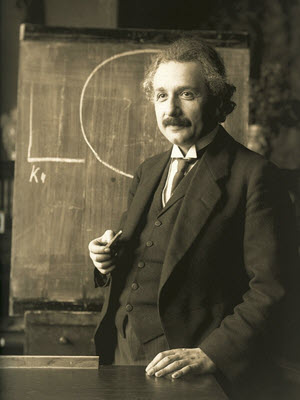
Albert Einstein (14 March 1879 – 18 April 1955) was a German-born theoretical physicist who developed the theory of relativity, one of the two pillars of modern physics (alongside quantum mechanics). His work is also known for its influence on the philosophy of science.
He is best known to the general public for his mass–energy equivalence formula E = mc2, which has been dubbed "the world's most famous equation". He received the 1921 Nobel Prize in Physics "for his services to theoretical physics, and especially for his discovery of the law of the photoelectric effect", a pivotal step in the development of quantum theory.
|
| 13 | 1880 | - 23 Apr 1880—9 Jun 1885: William Ewart Gladstone - 43rd British Prime Minister

William Ewart Gladstone (29 December 1809 – 19 May 1898) was a British statesman and Liberal Party politician. In a career lasting over sixty years, he served for twelve years as Prime Minister of the United Kingdom, spread over four terms beginning in 1868 and ending in 1894.
Historians have debated the wisdom of Gladstone's foreign-policy during his second ministry. Paul Hayes says it "provides one of the most intriguing and perplexing tales of muddle and incompetence in foreign affairs, unsurpassed in modern political history until the days of Grey and, later, Neville Chamberlain."
|
| 14 | 1881 | - 6 Aug 1881: Sir Alexander Fleming born
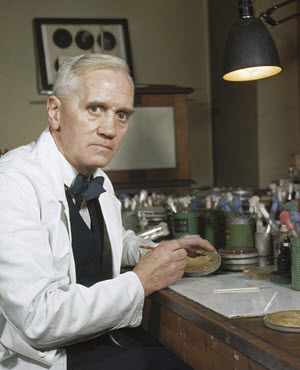
Sir Alexander Fleming (6 August 1881 – 11 March 1955) was a Scottish physician, microbiologist, and pharmacologist. His best-known discoveries are the enzyme lysozyme in 1923 and the world's first antibiotic substance benzylpenicillin (Penicillin G) from the mould Penicillium notatum in 1928, for which he shared the Nobel Prize in Physiology or Medicine in 1945 with Howard Florey and Ernst Boris Chain. He wrote many articles on bacteriology, immunology, and chemotherapy.
|
| 15 | 1884 | - 1884: The Greenwich Prime Meridian
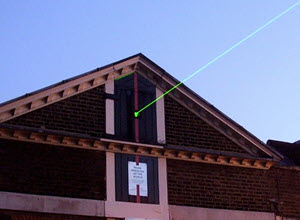
A prime meridian, based at the Royal Observatory, Greenwich, in London was established by Sir George Airy in 1851. By 1884, over two-thirds of all ships and tonnage used it as the reference meridian on their charts and maps. In October of that year, at the behest of US President Chester A. Arthur, 41 delegates from 25 nations met in Washington, D.C., United States, for the International Meridian Conference. This conference selected the meridian passing through Greenwich as the official prime meridian due to its popularity. However, France abstained from the vote, and French maps continued to use the Paris meridian for several decades.
|
| 16 | 1885 | - 23 Jun 1885—28 Jan 1886: Marquess of Salisbury 44th British Prime Minister
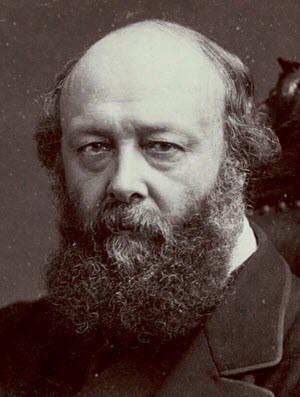
Robert Arthur Talbot Gascoyne-Cecil, 3rd Marquess of Salisbury, (3 February 1830 – 22 August 1903), styled Lord Robert Cecil before 1865 and Viscount Cranborne from June 1865 until April 1868, was a British statesman and Conservative Party politician, serving as Prime Minister three times for a total of over thirteen years. He was the last Prime Minister to head his full administration from the House of Lords.
He became Prime Minister of a minority administration from 1885 to 1886. In the November 1883 issue of National Review Salisbury wrote an article titled "Labourers' and Artisans' Dwellings" in which he argued that the poor conditions of working class housing were injurious to morality and health
|
| 17 | 1886 | - 1 Feb 1886—20 Jul 1886: William Ewart Gladstone - 45th British Prime Minister

William Ewart Gladstone (29 December 1809 – 19 May 1898) was a British statesman and Liberal Party politician. In a career lasting over sixty years, he served for twelve years as Prime Minister of the United Kingdom, spread over four terms beginning in 1868 and ending in 1894.
During this administration he first introduced his Home Rule Bill for Ireland. The issue split the Liberal Party (a breakaway group went on to create the Liberal Unionist party) and the bill was thrown out on the second reading, ending his government after only a few months and inaugurating another headed by Lord Salisbury.
- 25 Jul 1886—11 Aug 1892: Marquess of Salisbury - 46th British Prime Minister

Robert Arthur Talbot Gascoyne-Cecil, 3rd Marquess of Salisbury, (3 February 1830 – 22 August 1903), styled Lord Robert Cecil before 1865 and Viscount Cranborne from June 1865 until April 1868, was a British statesman and Conservative Party politician, serving as Prime Minister three times for a total of over thirteen years. He was the last Prime Minister to head his full administration from the House of Lords.
In 1889 Salisbury set up the London County Council and then in 1890 allowed it to build houses. However, he came to regret this, saying in November 1894 that the LCC, "is the place where collectivist and socialistic experiments are tried. It is the place where a new revolutionary spirit finds its instruments and collects its arms".
|


